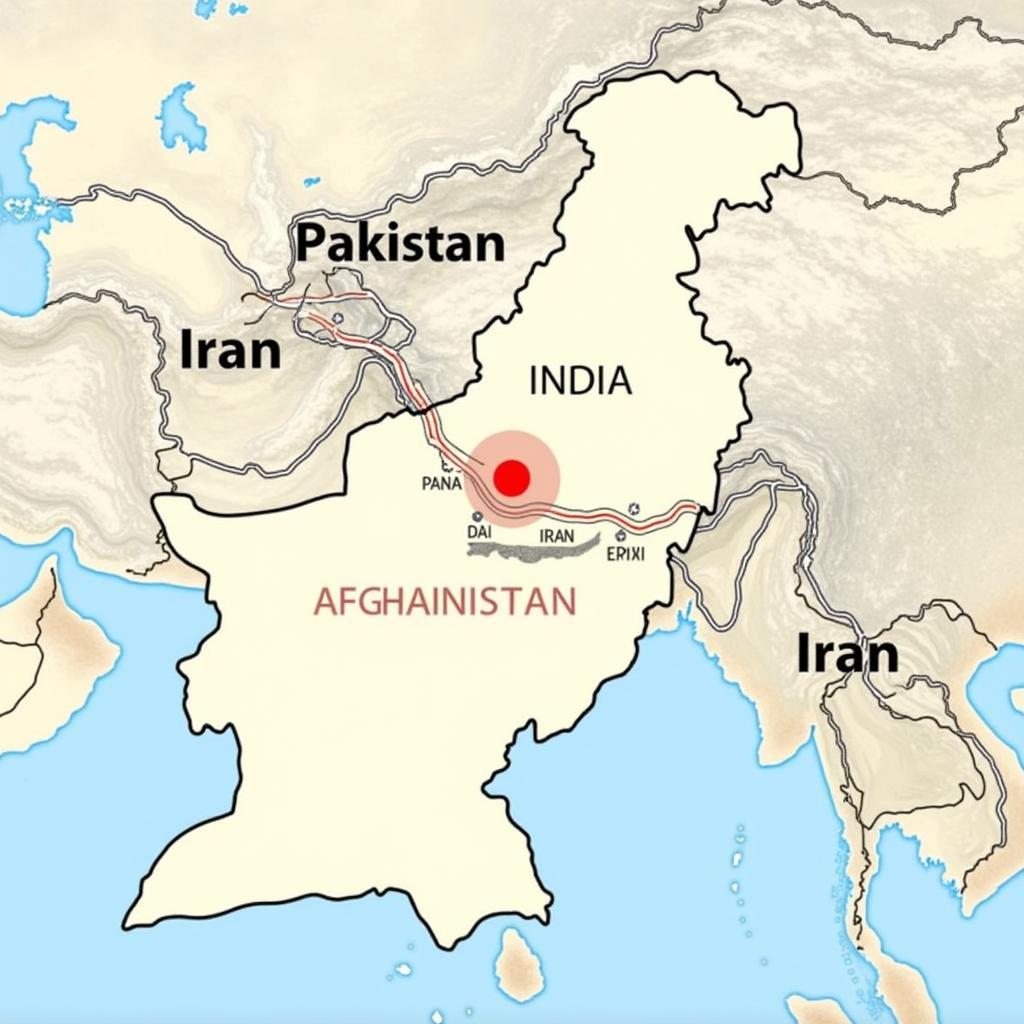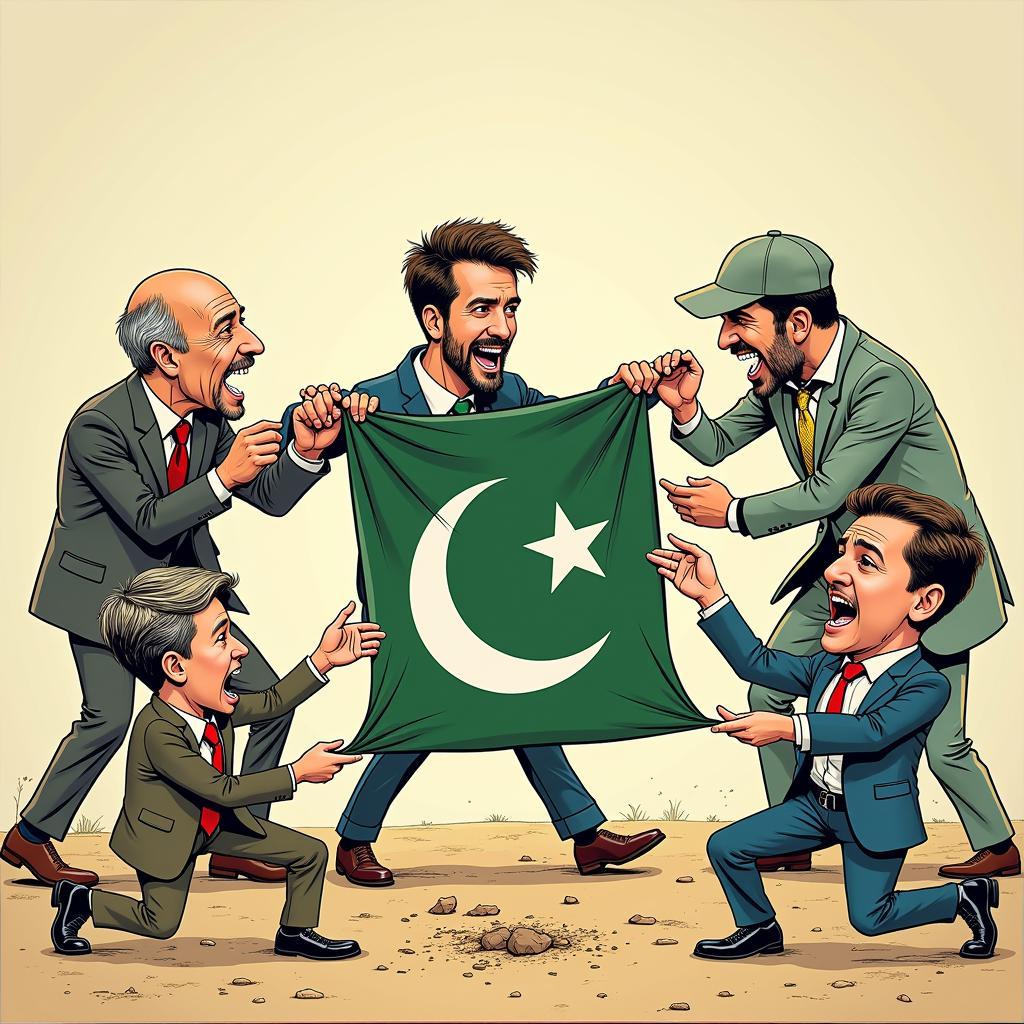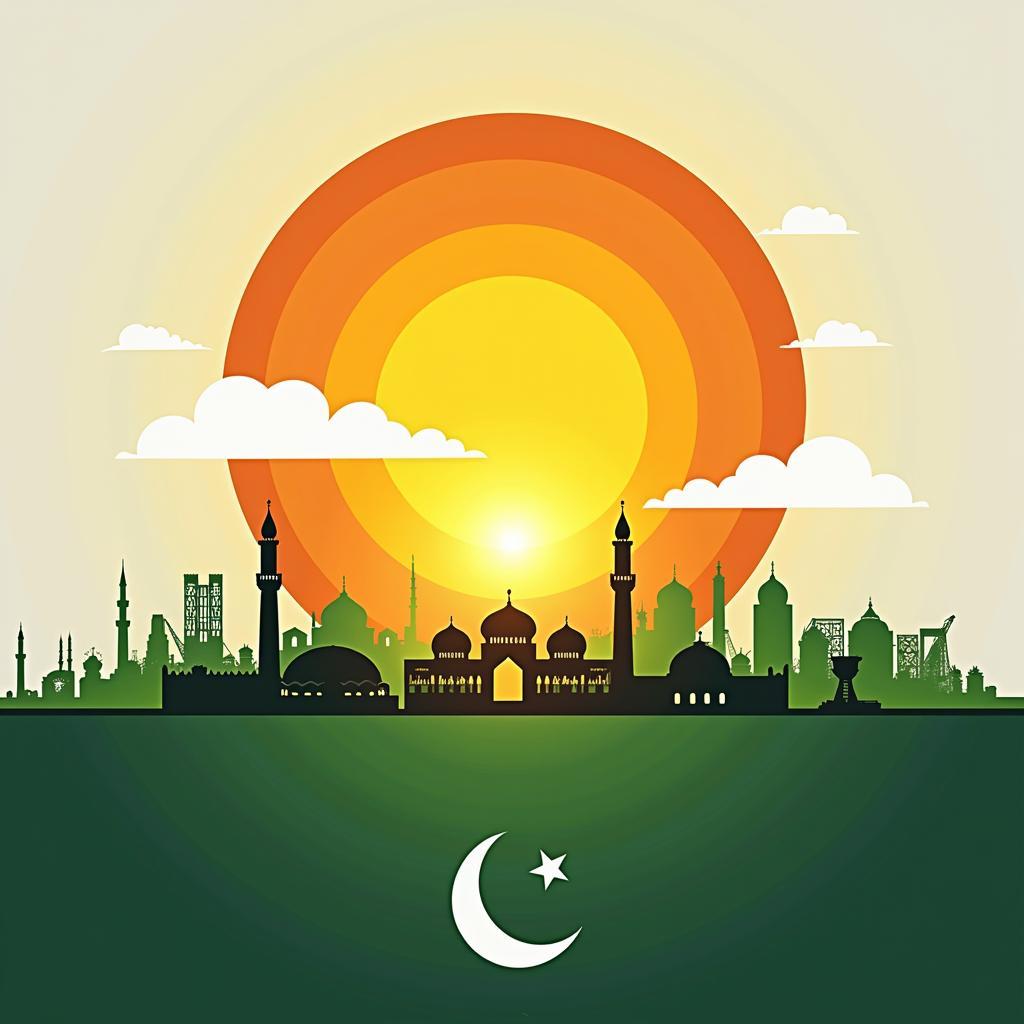The term “Punching Bag Pakistan” has emerged in recent geopolitical discourse, reflecting the country’s complex and often precarious position on the world stage. But what does this metaphor really mean, and what are its implications for Pakistan’s future?
A History of External Pressures
Pakistan, since its inception in 1947, has faced a unique set of geopolitical challenges. Situated at the crossroads of South Asia, Central Asia, and the Middle East, the country has been a focal point for regional rivalries and global power struggles.
 Pakistan’s Geopolitical Location
Pakistan’s Geopolitical Location
One of the most significant factors shaping Pakistan’s geopolitical landscape is its complex relationship with India. The two countries have fought multiple wars and remain locked in a bitter dispute over the Kashmir region. This ongoing conflict has had a profound impact on Pakistan’s domestic and foreign policy, often diverting resources away from development and pushing the country towards militarization.
Beyond India, Pakistan has also had to navigate the turbulent waters of Afghan politics. The long war in Afghanistan, with the presence of both the Soviet Union and later the United States, has spilled over into Pakistan, leading to an influx of refugees, the rise of militancy, and internal instability.
The “Punching Bag” Narrative
The “punching bag” metaphor, while undoubtedly provocative, captures a certain reality about Pakistan’s experiences. The country has often found itself on the receiving end of criticism, pressure, and even military action from external actors. This can be attributed to a number of factors, including:
- Strategic Location: Pakistan’s location makes it a valuable prize in the eyes of major powers seeking to project influence in the region. This strategic importance, however, often comes at the cost of autonomy and sovereignty.
- Internal Vulnerabilities: Pakistan has struggled with internal political instability, economic challenges, and social divisions. These vulnerabilities have at times been exploited by external actors seeking to advance their own interests.
- Allegations of Double-Dealing: Pakistan has been accused of playing a “double game,” supporting the US-led war on terror while simultaneously harboring militant groups. These allegations, whether true or not, have damaged Pakistan’s reputation and made it difficult to build trust with international partners.
 Pakistan Facing International Pressure
Pakistan Facing International Pressure
Moving Beyond the Metaphor
While the “punching bag” metaphor provides a useful starting point for understanding Pakistan’s geopolitical challenges, it is important to move beyond this simplistic narrative. Pakistan is not a passive actor, and it has agency in shaping its own destiny.
In recent years, Pakistan has taken steps to assert itself on the world stage. The country has played an active role in regional organizations like the South Asian Association for Regional Cooperation (SAARC) and has sought to strengthen its economic and diplomatic ties with countries like China, Russia, and Turkey.
Moreover, Pakistan has made significant progress in combating terrorism and extremism within its borders. The Pakistani military has conducted successful operations against militant groups, and the government has implemented policies aimed at countering radicalization.
The Future of Pakistan’s Geopolitics
Pakistan’s geopolitical future remains uncertain. The country continues to face significant challenges, including internal instability, economic woes, and regional tensions. However, Pakistan also possesses a number of strengths, including a resilient population, a strategic location, and a growing economy.
The key for Pakistan will be to leverage its strengths while addressing its weaknesses. This will require a multifaceted approach that includes:
- Strengthening Democratic Institutions: A stable and democratic Pakistan is essential for both domestic progress and for building trust with international partners.
- Promoting Economic Development: A strong economy will provide the resources necessary to meet Pakistan’s development needs and enhance its standing in the world.
- Pursuing a Balanced Foreign Policy: Pakistan must navigate the complex geopolitical landscape by pursuing a foreign policy that prioritizes its own interests while seeking cooperation with all responsible actors.
 Pakistan’s Potential for Growth and Development
Pakistan’s Potential for Growth and Development
By taking these steps, Pakistan can move beyond the “punching bag” narrative and chart a new course for itself as a respected and influential member of the international community.
Conclusion
The “punching bag Pakistan” metaphor, while reflecting certain historical realities, should not define the country’s future. Pakistan has the potential to overcome its challenges and emerge as a strong, prosperous, and influential nation. By focusing on internal reforms, pursuing a balanced foreign policy, and leveraging its strategic location, Pakistan can create a brighter future for itself and its people.
FAQs
1. What are the main reasons behind the “punching bag” metaphor for Pakistan?
The metaphor arises from Pakistan’s history of facing external pressures, often being caught in the crosshairs of global power struggles, and struggling with internal vulnerabilities that are sometimes exploited by other nations.
2. Is the “punching bag” label entirely accurate for Pakistan?
While the metaphor highlights real challenges, it’s a simplification. Pakistan possesses agency and has taken steps to assert itself on the global stage, particularly in recent years.
3. How can Pakistan move beyond this negative perception?
By strengthening its democratic institutions, fostering economic growth, tackling internal issues, and pursuing a balanced foreign policy, Pakistan can reshape its image and role in the world.
4. What role does Pakistan’s relationship with India play in its geopolitical situation?
The long-standing conflict with India over Kashmir significantly impacts Pakistan’s domestic and foreign policies, often diverting resources and fueling regional tensions.
5. What are some of Pakistan’s strengths that could help it navigate future challenges?
Pakistan has a resilient population, a strategically important geographic location, and a developing economy, all of which can be leveraged for future progress.
Need further assistance? Contact our 24/7 customer service team:
Phone: +923337849799
Email: [email protected]
Address: Dera Ghazi Khan Rd, Rakhni, Barkhan, Balochistan, Pakistan
Explore more insights on Pakistan’s geopolitical landscape and other related topics on our website.
Leave a Reply